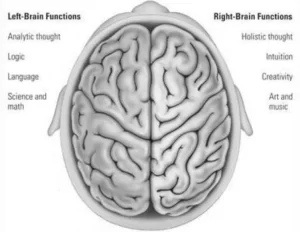Your success will be determined by your own confidence and fortitude. — Michelle Obama
Self-confidence is a building block to having a successful long-term career. According to Forbes, more than 60% of companies are looking for one the top trait is self-confidence.
What is self-confidence?
Self-confidence is an attitude about your skills and abilities. It means you accept and trust yourself and have a sense of control in your life. — University of South Florida
According to my research and anecdotal observations, only two things can happen if you are self-confident.
1- Capability to do things
- Skillset
- Experience
- Knowledge
2- Mindset
Your mindset has to be convinced that you can achieve it.
Let’s dive into the learning part.
You may be a competent individual, but you are not convinced to perform a specific task. To have the capability to do things and have a convinced mindset are entirely two different things. Many people are confused about them at work or even in general life.
So what do you do now?
The only way to convince your brain that you are capable is by doing. If you fail, you are not capable, but you have the mindset.
You have to win using your skills, knowledge, and experience to convince your mind that you can do complex tasks.
It might be anything as simple as a compliment from your coworkers, direct supervisor, or management that you are doing an excellent job. Simply praising can work wonders and convince your brain that you are capable.
Remember, positive feedback is critical here; it’s the only way your brain will accept that you have the ability to perform these kinds of challenging tasks. Negative criticism may sabotage your thinking, decreasing your self-esteem.
We can relate winning and failure in daily life. We know that wins boost our confidence, and failure destroys it.
When people get into an accident while driving, you may hear that they lose confidence to drive again, especially if they face a couple of accidents in a small time frame.
Now let’s relate to the corporate world; if someone got fired at the job, their confidence level automatically hit the ground level.
How to match the capability level with mindset?
The magic is going to happen if and only if you are going to calibrate the skillset, knowledge, and experience with your mindset.
Suppose you believe (it’s a big word, sometimes close to arrogance at work level) that you have the capability but are not convinced.
My $0.02 approach
Always take a small project to show your skills, and that project will help you convince your mind that you are ready to take more challenging assignments.
Later, the tough assignment will help you prove to your brain that you are an achiever.
Whenever I switch a job accepting unknown challenges, most of the time. I always prefer to take a tiny assignment to calibrate my experience with the mindset.
Sometimes you have to take the small project that is lower than your capability to prove to the management that you can do more challenging projects. That method will also help you to grab the next promotion.
Next Level
Sometimes you have the capability (experience, skillset, knowledge) and the right mindset, but you still do not have the confidence to take the next big opportunity.
Only one issue here — communications skills. This is the common issue with the people who have strong technical background: programmers, architects, researchers, etc
Key takeaways
Let’s get one thing out of the way: no one will be able to help you but yourself. And the worst part is that you cannot fix it yourself if you do not know it’s already broken.
As an immigrant, I used to think that my technical and communication skills were top-notch, which made me arrogant, harmed the first component (capability) and the second part (mindset).
However, at some point in my career, I realized that with the help of a great mentor, the biggest obstacle was to focus on communication skills.
Speaking and writing are the two most important skills to help you to calibrate your skillset and mindset.
Large multinational corporations provide career development programs where a psychologist can identify your problems before destroying your confidence.
I’m not saying it can’t be done at small businesses, but larger companies have budgets and whole departments dedicated to these challenges in order to achieve their long-term goals.
Let me recall the two main points to build your self-confidence in your professional life.
- Capability factor: skillset, experience, and knowledge
- Convinced mindset
Recommendation
Find an excellent mentor to help you design your career by assessing whether you have a confidence issue since this might be the biggest hurdle in your career.
Thank you for reading; follow me and clap a couple of times.




